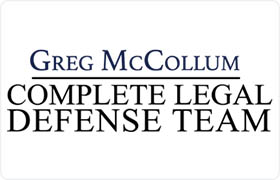Horry County, SC Criminal Lawyers, page 2
Sponsored Law Firm
-
 x
x

Click For More Info:
-
Greg McCollum Complete Legal Defense Team
1012 38th Avenue North Suite 202 Myrtle Beach, SC 29577» view mapCriminal Defence Law Complete Legal Defense Team
Our goal at the Complete Legal Defense Team is to examine the facts and circumstances completely and help our clients.
800-634-0690
L. Morgan Martin
Criminal, Wrongful Death, Personal Injury, Car Accident, Accident & Injury
Status: In Good Standing
Michael Joseph O'Sullivan
Power of Attorney, State and Local, Criminal, Consumer Protection, Defamation & Slander
Status: In Good Standing Licensed: 19 Years
Scott Joye
Accident & Injury, Car Accident, DUI-DWI, Collection, Accident & Injury
Status: In Good Standing
 Greg McCollum Myrtle Beach, SC
Greg McCollum Myrtle Beach, SC AboutGreg McCollum Complete Legal Defense Team
AboutGreg McCollum Complete Legal Defense Team Practice AreasExpertise
Practice AreasExpertise